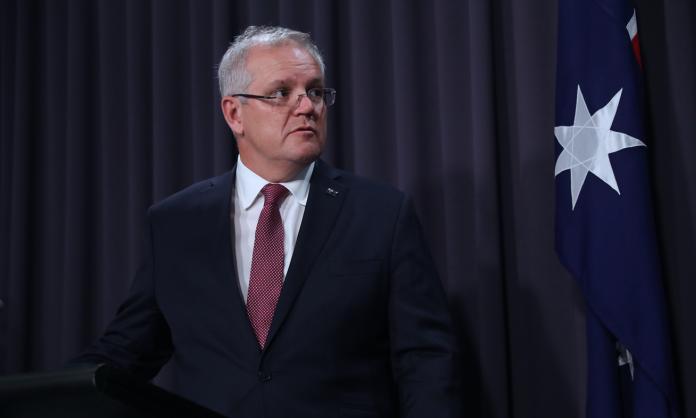“Things are moving very quickly.” It’s something we hear often from commentators and officials these days. We don’t need to be told. Our lives, and the world, now bear only a faint resemblance to what they were a month ago.
Australia’s border is shut, a check point and permit system limits movement between states, schools have closed and childcare is free. “Every day brings news of developments that, as recently as February, would have felt impossible – the work of years, not mere days”, writes Peter Baker in the Guardian.
Yet one cog turns exactly as it did before: evictions. Except for Tasmania, where a temporary eviction ban was introduced using emergency powers, not one word of any state’s tenancy laws has changed. If they rent, the hundreds of thousands or more who have been put out of work in March have no greater legal protection against losing their home than they did before the world began to unravel.
While most courts are winding down and delaying whatever they can, tenancy tribunals in most of the country continue to hear cases. In Victoria, the relevant tribunal is a general body that hears many different types of cases. As a public health measure, it has adjourned all cases in all but two of its lists “for the foreseeable future”. One of the two exceptions is the residential tenancies list.
This isn’t about ensuring that tenants have safe and well-maintained homes to see them through the pandemic. Tenancy tribunals overwhelmingly serve as forums for landlords to bring applications against tenants (nearly 90 percent of cases in Victoria are landlord-initiated). And more than half of these are eviction cases – this is essential activity.
Scott Morrison’s announcement on 29 March that landlords would be prevented from evicting financially strained tenants for six months – the much vaunted “eviction moratorium” that has gained widespread media attention – remains little more than a press release more than a week later.
In case you thought that the announcement meant that any urgency would be applied to the task of securing protections for residential tenants, the prime minister has worked hard to correct our perceptions. The “priority” has been on commercial tenancies “given the business issues involved”, he later clarified.
But the suggestion of a limit on their capacity to evict has unsettled many landlords and real estate agents. “Anecdotally, we have heard that there has been a surge in landlords seeking to evict tenants while they feel they still can”, says Joey (not his real name), a housing worker in Melbourne, who is part of one of a number of newly-formed housing rights groups springing up.
Officially, the real estate industry is toeing the national unity line and supporting a limit on evictions during the crisis. But its position is more pragmatism than philanthropy. Mass unemployment and skyrocketing homelessness is not good for property prices.
And if any restrictions on evictions are eventually implemented, no tenant will be allowed to use unprecedented economic collapse and a global pandemic to get one over the Real Estate Institute of Australia. No siree, Bob.
Adrian Kelly, president of the institute, rushed out a media statement in the days after Morrison’s announcement alerting tenants that there would be no “free rides” – rents continue to accrue whether a tenant can pay or not and whether the landlord can evict or not. Anyone “abusing” any new laws would be caught by state regulators, he also said in an interview with the Daily Telegraph.
At a time when many neoliberal orthodoxies seem very three weeks ago, the treatment of housing as a commodity – available only to those who can meet the market – is one pillar of the system the ruling class is determined not to let crack.








